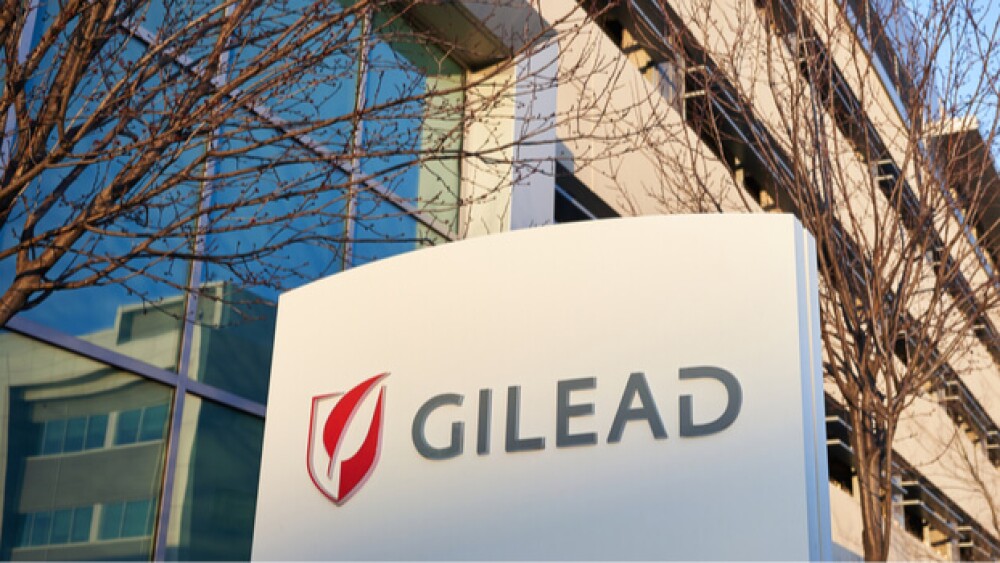It will evaluate about 440 patients and the treatments’ effect on liver fibrosis improvement and NASH resolution.
Tada Images/Shutterstock
Foster City, California-based Gilead Sciences and Bagsvaerd, Denmark-based Novo Nordisk have expanded their existing clinical partnership in non-alcoholic steatohepatitis (NASH). NASH is the most severe form of non-alcoholic fatty liver disease (NAFLD). It is related to the epidemic of obesity pre-diabetes and diabetes. It can lead to cirrhosis of the liver but is seen in people who drink little or no alcohol.
The two companies plan to run a Phase IIb trial to evaluate Novo Nordisk’s semaglutide, a GLP-1 receptor agonist, and a fixed-dose combination of Gilead’s FXR agonist cilofexor and investigational ACC inhibitor firsocostat, alone and in combination in patients with compensated cirrhosis (F4) from NASH. It will evaluate about 440 patients and the treatments’ effect on liver fibrosis improvement and NASH resolution. It’s expected to begin recruiting in the second half of this year.
Semaglutide is the active ingredient in Ozempic, Novo Nordisk’s weekly injection and its daily pill Rybelsus, both used to treat type 2 diabetes.
Gilead picked up firsocostat and cilofexor from Nimbus Therapeutics and Phenex Pharmaceuticals, respectively.
In November 2020, Gilead and Novo Nordisk presented data from a Phase II proof-of-concept clinical trial of semaglutide in combination with cilofexor and/or firsocostat in non-alcoholic steatohepatitis (NASH). They presented the results at The Liver Meeting Digital Experience (TLMdX).
The trial hit its primary endpoint. It demonstrated that in people with NASH and mild to moderate fibrosis, all combinations were well tolerated. The most common side effects were gastrointestinal. Minimal itching was seen in people receiving cilofexor. In all the groups, 5 to 14% of participants discontinued any trial because of adverse events (AE).
There were also exploratory endpoints that evaluated biomarkers of liver health at 24 weeks in post-hoc analysis. These showed statistically significant improvements in hepatic steatosis, as measured by MRI proton density fat fraction (MRK-PDFF) and liver injury, as measured by serum alanine aminotransferase (ALT). This was in the combination arms compared to semaglutide alone.
The trials also evaluated liver stiffness using vibration-controlled transient elastography (VCTE) and enhanced liver fibrosis (ELF), showing a decline across all groups, but was not deemed statistically significant.
A post-hoc analysis of exploratory efficacy endpoints of biomarkers of liver health at 24 weeks demonstrated statistically significant improvement in hepatitis steatosis, which was measured by MRI proton density fat fraction (MRK-PDFF) and liver injury, measured by serum alanine aminotransferase (ALT) in the combination treatment arms compared to semaglutide alone. Liver stiffness and Enhanced Liver Fibrosis (ELF) declined in all groups, but was not statistically significant.
“NASH is a disease with a high unmet medical need, as no drugs are currently approved to treat this potentially life-threatening condition,” said Martin Holst Lange, executive vice president and Head of Development at Novo Nordisk. “Building on the positive results from our proof-of-concept trial, we hope together with Gilead to demonstrate the potential for semaglutide with cilofexor and firsocostat to help people living with NASH.”
The NASH market has been a tough nut to crack. For quite some time, the leading company was thought to be Intercept Pharmaceuticals with its FXR agonist obeticholic acid, but the U.S. Food and Drug Administration (FDA) rejected the drug in July 2020 for that indication, arguing that its benefits did not outweigh the risks.
After negative interim data from its Phase III RESOLVE-IT trial of elafibranor in NASH and fibrosis, back in May 2020, France’s Genfit discontinued their trial in July.
In August 2020, Merck entered into an exclusive licensing deal with Hanmi Pharmaceutical for the development, manufacture and commercialization of efinopegdutide for nonalcoholic steatohepatitis (NASH). Efinopegdutide is a GLP-1/glucagon receptor dual agonist. It activates both the GLP-1 and glucagon receptors. In Phase I and II clinical trials, the drug has shown safety and efficacy for severely obese individuals with and without type 2 diabetes.
Decisive Markets Insights issued a report today on the NASH market, which they expect to grow at a CAGR of 7.15%. The biggest players currently are Gilead and Novo Nordisk, as well as Immuron. Australia’s Immuron hasn’t reported much news about their NASH program in a while. The most recent appears to be in March 2018, when it reported positive results in its IMM-124E Phase II NASH trial. Their product, IMM-124E is a very different approach. It is an oral, three-times-daily, non-absorbable molecule containing poly-clonal anti-LPS immunoglobulins designed to interact with the gut LPS and immune system to modulate LPS-related inflammation and inducing tolerance.
Featured Jobs on BioSpace





